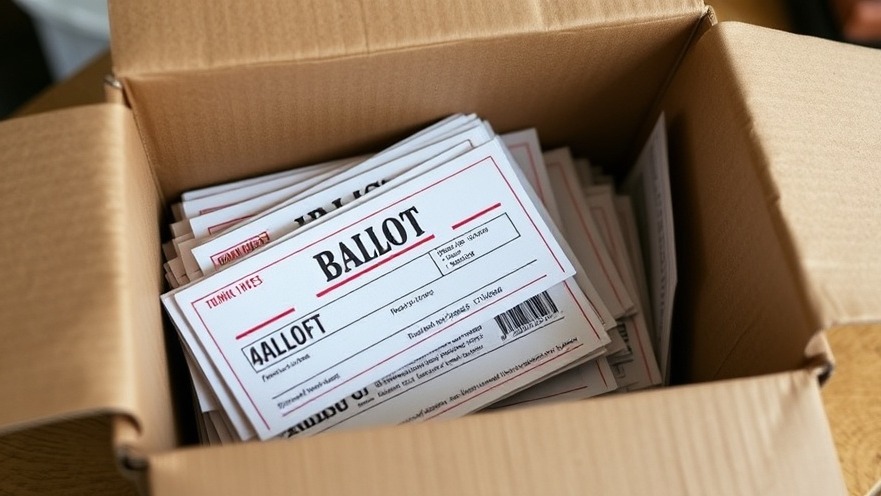
Texas Voting by Mail: A Key Ruling on ID Requirements
The U.S. Fifth Circuit Court of Appeals has recently upheld Texas’ stringent ID requirements for mail-in voting, ruling that the need for voters to provide identification numbers on their mail-in applications and ballots complies with federal law. This decision follows a contentious debate surrounding Senate Bill 1, which has sparked legal challenges from various civil rights organizations.
According to the ruling, outlined by Judge James Ho, the ID number requirement does not violate the 1964 Civil Rights Act, marking a significant legal victory for Texas Attorney General Ken Paxton, who advocates for such voter ID measures as essential for election integrity. Critics, however, argue that the law disproportionately affects voters with disabilities and could lead to disenfranchisement.
The Implications of the Ruling
Many advocates for voting rights claim that enforcing ID requirements may lead to a decline in voter turnout, particularly among marginalized groups. A study by the Brennan Center for Justice observed that voters whose mail ballots were rejected due to ID issues were compelled to either change their voting methods or abstain from voting altogether during the 2022 primary season. This study raises questions about the true impact of voter ID laws and their effectiveness in combating absentee voter fraud.
Understanding Voter ID Laws
The context surrounding voter ID laws in Texas is rooted in broader national trends where several states have adopted similar measures under the premise of safeguarding electoral processes. However, the balance between ensuring security and protecting voting rights remains a hotly contested issue.
Opponents of these measures argue that fraud is not only rare but that the laws create barriers that can prevent legitimate voters from participating. The debate continues over whether such laws diminish a key element of democracy: the right to vote.
The Historical Context of Voting Rights in Texas
Texas has a long and complex history of voting rights, punctuated by various reforms and challenges. The Voting Rights Act of 1965 aimed to eliminate barriers that had historically limited the participation of minority groups, particularly in Southern states. However, recent legislative moves, such as SB 1, have been perceived as regression in that progress.
As Texas moves through an ever-evolving political landscape, understanding the implications of decisions like this one requires a thorough grasp of the historical shifts in voting rights and legislation. Many look at Texas as a bellwether for similar laws being considered in other jurisdictions.
Current Landscape and Future Implications
With the upcoming elections in 2025 on the horizon, the impact of such court rulings will be pivotal. As Texas’s population continues to grow and diversify, the outlook on voting laws will likely influence broader electoral trends across the nation. Observers speculate that increasing scrutiny on voting rights and civil liberties will shape political campaigns and voter mobilization strategies significantly.
The implications of recent rulings and the current political climate suggest that both sides of the voter ID debate will rally their bases as we approach the next election cycle.
What Voters Should Know
For Texas residents, understanding these evolving laws is crucial for exercising their voting rights. Being informed empowers individuals to navigate the application process for mail-in voting and ensures that they have the necessary identification to avoid potential issues.
As the scenario unfolds, voter education will play an essential role. Organizations working to inform voters about their rights and the requirements to participate in upcoming elections must take proactive measures to ensure that no citizen is left behind.
Conclusion: What Lies Ahead for Texas Voting
The recent court ruling is only one piece of the larger puzzle regarding voting rights in Texas. As the legal challenges continue and public opinion shifts, the landscape of voting laws may soon be subject to further scrutiny, debate, and future legal challenges. With all eyes on Texas, understanding the ramifications of these decisions will be essential for all Texans as they prepare for their democratic responsibilities.
 Add Element
Add Element  Add Row
Add Row 



Write A Comment